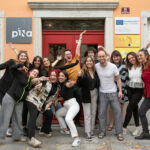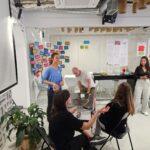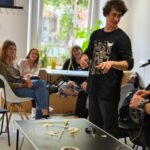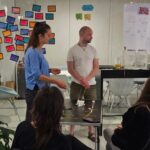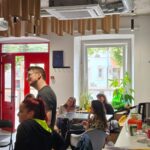Notifications
YOUTH WORKERS FROM FIVE COUNTRIES AT PiNA
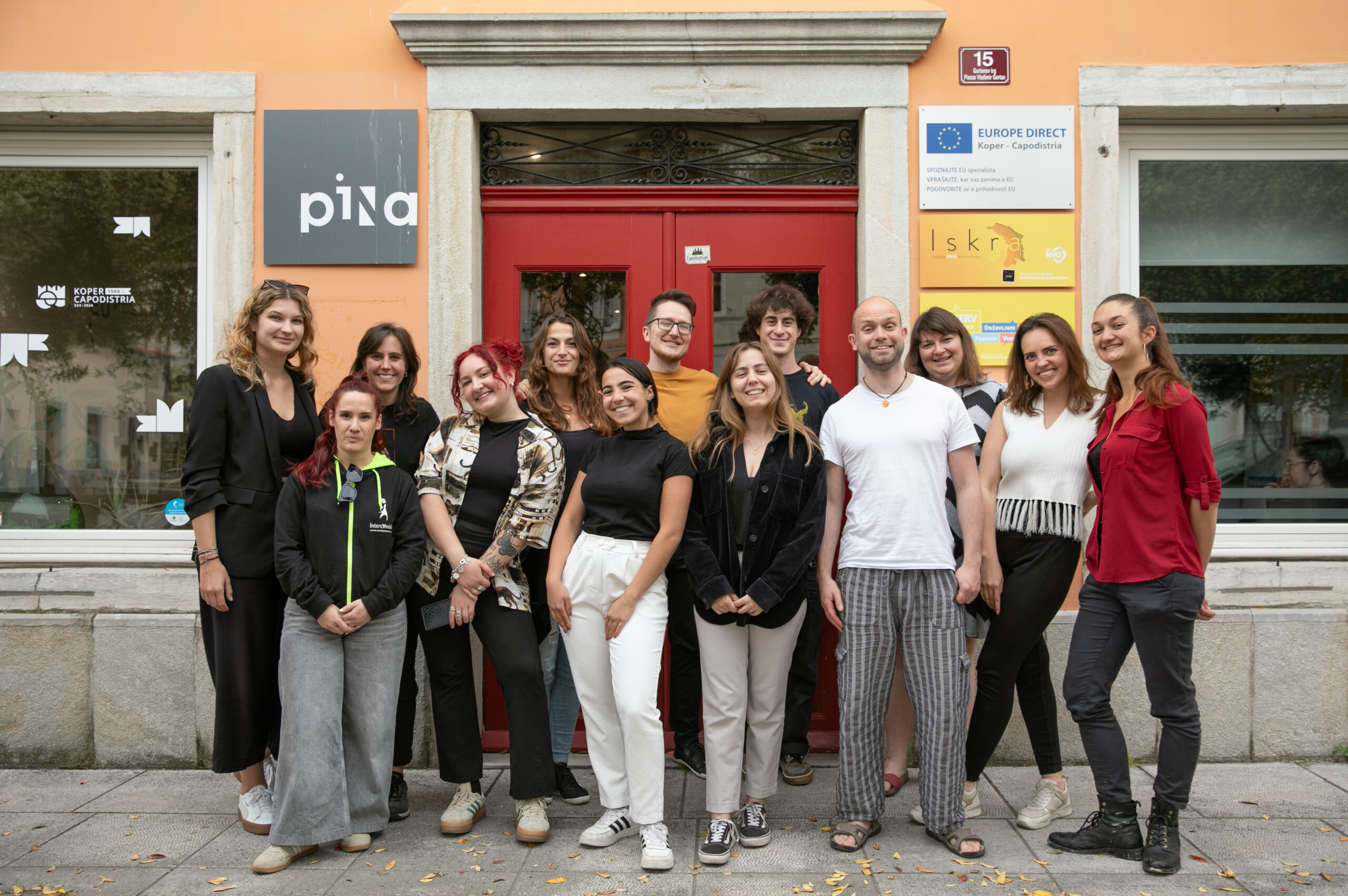
Three-day training on participatory youth work (20 – 22 May 2025)
From 20 to 22 May, PiNA ran an intensive three-day training course for 14 youth workers from Slovenia, Italy, Spain, Belgium and Estonia, focusing on how to involve young people in decision-making and the co-creation of projects. Over the course of three days we explored how to spark an active role for young people in the community, bring them into decision processes and enable them to become co-creators of the projects that affect them. Interactive workshops and presentations allowed us to delve into participation methods and exchange practical tools that can be applied immediately in day-to-day youth work. The methodologies presented are essential for engaging young people in the processes that concern them – a shared responsibility we all carry.
In our premises we wove together interactive workshops, exchanges of practice and case studies, and we jointly:
1.Reflected on and shared concrete experiences with participatory-planning methods
World Café
A structured yet informal dialogue in small rotating groups, built on three principles: a café-style atmosphere, open questions and visual harvesting of ideas. As participants “migrate” between tables they meet new perspectives, while each table host ensures continuity. The outcome is a rapid “harvest” of collective knowledge that facilitators later distil into clear guidelines.
Participatory Budgeting (PB)
An orderly democratic process in which the community proposes, debates and votes on how a portion of public funds is spent. Key steps include collecting proposals, checking feasibility, publicly presenting projects, voting and monitoring implementation. The process teaches transparency and strengthens the sense of co-responsibility and belonging.
Design-Thinking Sprint
A five-day (or adapted) rapid-innovation cycle: empathise (gather user insights) → define the challenge → ideate → prototype → test. The sprint blends divergent and convergent thinking and enables teams to produce solutions validated by real users in a very short time.
LEGO® Serious Play®
A “thinking-with-hands” method in which participants build metaphorical models of ideas or challenges with LEGO bricks. Physical modelling enables deeper reflective dialogue, as each model acts as a visual and tactile “talking object”. The process fosters ownership of stories, active listening and fast alignment of shared understanding.
2. Developed concrete prototypes of activities to strengthen youth engagement in local communities
Prototyping follows an iterative build – test – improve cycle. It uses low-budget, quickly made models (paper sketches, storyboards, role-plays) to test key hypotheses with young people. Core principles are user focus, early feedback and readiness to adapt. This approach reduces the risk of launching new programmes by allowing real-time adjustment to community needs.
3. Tested digital tools for remote participation
Miro – an online whiteboard for visual collaboration that supports brainstorming, mind-mapping and user-journey creation. Simultaneous editing, comments and voting make it ideal for rapid remote co-design.
Loomio – an open-source group decision-making platform combining discussions with proposal building, polls and consensus tools. Emphasis is on process transparency and archiving of decisions.
Mentimeter – an interactive presentation tool with live polls, quizzes and word clouds; results appear instantly in graphical form, encouraging immediate feedback and greater engagement online or in hybrid settings.
4. Built a network for continued cooperation to share experience and support all participants in the coming months
Establishing a Community of Practice is based on regular meetings, resource sharing and collective reflection. Key components include:
- a clear purpose and objectives,
- a digital hub (e.g. Nextcloud, Slack) for ongoing communication and shared documents,
- a mentoring or “buddy coaching” system, and
- periodic evaluation cycles that measure progress and adapt activities to members’ needs.
Such a network provides lasting support, horizontal learning and quicker transfer of good practices between organisations and countries.
The training was organised under the Erasmus+ programme, and all participants received a Youthpass certificate.

